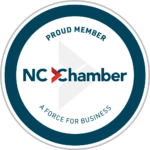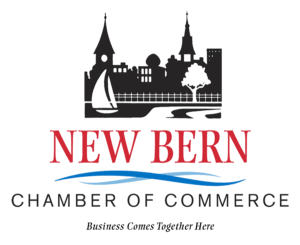Starting a business can feel like learning a new language. Whether you’re launching your first startup or opening a local shop, understanding basic business terms is essential for making smart decisions and communicating with confidence. This guide breaks down key business terminology—explained clearly and practically—to help you build a strong foundation for your entrepreneurial journey.
TL;DR
If you’re new to business, focus first on understanding these essentials:
-
Cash flow: The movement of money in and out of your business.
-
Profit margin: The percentage of revenue that remains after costs.
-
Equity: The value of ownership in your business.
-
Assets and liabilities: What your business owns vs. what it owes.
-
Marketing and branding: How people discover and recognize your business.
Once you can explain these in your own words, you’re ready to have meaningful conversations with partners, investors, and mentors.
Key Business Terms
|
Term |
Definition |
Why It Matters |
|
Revenue |
Total money earned from sales before expenses |
Measures business growth potential |
|
Expenses |
Costs incurred while running the business |
Reducing unnecessary expenses increases profit |
|
Net Profit |
Money left after subtracting all costs from revenue |
Indicates how well your business is performing |
|
Assets |
Items of value owned by the business |
Strengthens balance sheet |
|
Liabilities |
Financial obligations or debts |
Too many liabilities reduce flexibility |
|
ROI (Return on Investment) |
Gain or loss relative to investment cost |
Evaluates success of spending decisions |
How-To: Understanding Your Financial Health
-
Track cash flow weekly.
Use a simple spreadsheet or accounting tool to monitor income and expenses.
-
Calculate your break-even point.
Know how much you must sell to cover fixed costs like rent, insurance, and wages.
-
Review your profit margin monthly.
Compare your sales and profit to see which products or services perform best.
-
Build a small cash reserve.
Keep at least three months of expenses set aside for unexpected costs.
-
Reinvest strategically.
Invest profits into growth—like marketing, staff training, or upgrading equipment.
Quick Reference Checklist
Use this mini checklist to ensure you’re managing your business like a pro:
FAQ: Common Questions for New Entrepreneurs
Q1: What’s the difference between revenue and profit?
Revenue is all the money your business earns; profit is what’s left after paying your expenses.
Q2: Do I need a business plan before starting?
Yes! A clear plan helps you define goals, understand your market, and attract financing. You can find templates on SCORE.org.
Q3: How do I fund a new business?
Options include savings, loans, local grants, or crowdfunding platforms like Kickstarter.
Q4: What’s the best way to manage business taxes?
Keep detailed records and consult a certified accountant or use trusted tools such as FreshBooks.
Q5: Do I really need a brand?
Absolutely. Branding is more than a logo—it’s how people remember and trust your business. Explore guides from HubSpot for brand strategy tips.
Business Documents That Build Trust
One key document every entrepreneur should know is the Letter of Intent (LOI). When you’re forming partnerships, exploring acquisitions, or negotiating with vendors, an LOI signals your serious intent to proceed with a deal. It’s essentially a roadmap before the formal contract is signed.
A letter of intent in business is a document outlining the preliminary understanding between parties before finalizing a formal agreement. Companies use LOIs to announce new collaborations or acquisitions before completing official paperwork like purchase or definitive agreements. Learn more by exploring what is a letter of intent.
Product Spotlight: Building Your Online Presence
A clear digital presence helps potential customers find and trust your business. Tools like Squarespace make it simple to create a professional website, while Google Business Profile ensures your local listing appears in search and maps. Combine those with Mailchimp for basic email marketing and Trello for team project management. Each plays a role in helping your small business look organized, credible, and ready for growth.
Mastering basic business terms is more than vocabulary—it’s about gaining confidence in every decision you make. Understanding these core concepts will help you manage money, communicate with investors, and scale your operations smartly. Start small, stay consistent, and use the resources available through the New Bern Area Chamber of Commerce to keep learning and growing.


